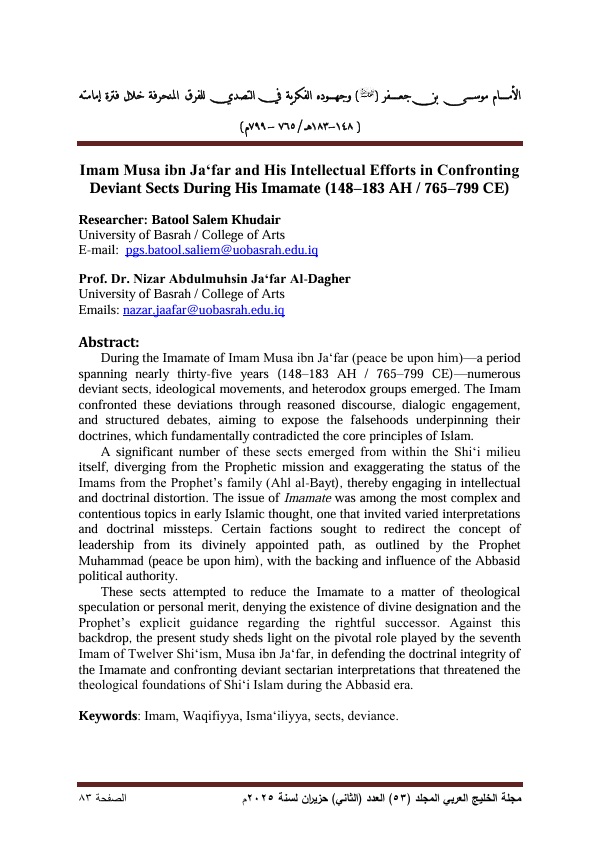الأمام موسى بن جعفر( ) وجهوده الفكرية في التصدي للفرق المنحرفة خلال فترة إمامته (148-183هـ/765-799م)
الكلمات المفتاحية:
الإمام ، الواقفة ، الإسماعيلية ، الفِرَقالملخص
انتشرت في عهد إمامة الإمام وموسى بن جعفر( ) - التي امتدت ما يقرب من خمس وثلاثين سنة (148-183/765-799م) - كثيرٌ من الفِرَق والتيارات والنِحَل المنحرفة الضالة وقد واجهها الإمام من خلال استخدام المنهج العقلي والحواري والمناظرات معهم وتوضيح انحرافهم كونها أقيمت وفق أسسٍ مخالفةٍ لخط الدين الإسلامي وقد برز من تلك الفِرَق المنحرفة عددٌ من التيارات الشيعية التي خالفت المنهج الرسالي وغالت في أئمة اهل البيت ( ) ومارست الانحراف الفكري و لا سيما و إن مسألة الإمامة كانت من المسائل المعقدة والشائكة التي جابهت المسلمين وتأوَّلوا فيها كثيرًا وانحرفوا في مساراتها الفكرية والعقائدية محاولين صرفها عن طريقها الحقيقي وبمساعدة السلطة السياسية في الدولة العباسية و تعزيزها كونها هي الخط الحاسم الذي فرضه النبي محمد(r) لخلافة أمور الإسلام والمسلمين لذا حاولت بعض التيارات والفِرَق أن تجعلها اجتهادًا عقديًّا يدعيه كل من حمل بعض الصفات والقدرات ناكرين النص الإلهي والوصية النبوية الإشارة عمن هو أحق بإمامة المسلمين فكان هذا البحث قد سلَّط الضوء على جهود سابع الأئمة الاثني عشرية (موسى بن جعفر ) للتصدي للفِرَق الشيعية التي أرهقت كاهل أئمة اهل البيت ( ) في العصر العباسي عندما حاولت إزاحة فكرة الإمامة وأناطتها بغير ما هو منصوص عليهم سلفًا .




